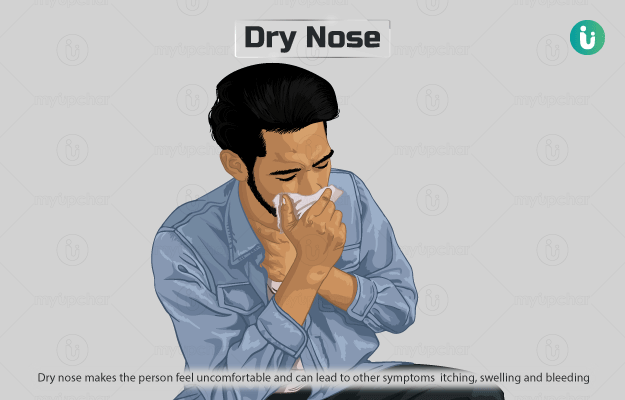What is dry nose?
Dry nose is a condition in which different foreign particles (pollutants, viruses, and bacteria) enter the human body through the nasal tract, causing a reduction in the amount of moisture, thereby, resulting in dryness. This makes the person feel uncomfortable and can lead to other symptoms.
What are its main signs and symptoms?
Signs and symptoms include:
- Cracks and lesions in the inner lining of the nose
- Nasal irritation
- Severe itching within the nostril
- Dryness within the mouth and the throat
- Rarely, swelling and bleeding of nose
- Sometimes, it causes constriction in the nasal passages
What are the main causes?
The main causes of dry nose are as follows:
- Low humidity
- Environmental factors
Side effects of medications such as:
- Decongestants
- Antihistamines
- Immunosuppressants
- Consumption of alcohol and drugs
- Hormonal changes in the body (menopausal females)
- Rhinitis
- High blood pressure
How is it diagnosed and treated?
Initially, a detailed history will be taken by the physician about the signs and symptoms, followed by a thorough physical examination of the external and internal nose. Depending on the patient history, the individual's age and the findings of the physical examination, the physician will advise the following:
- Endoscopy along with computed tomography (CT) of the nasal cavity (and paranasal sinuses) and the nasopharynx
- Laboratory investigations, which include various blood tests, allergy testing, and microbiological swabs
Treatment modalities include
- The predisposing factors should be eliminated.
- Moistening: With the help of a cleaned humidifier or vaporizer, moisture can be added to the environment to reduce dryness.
- Removal of crusts.
- Factors causing injury should be avoided and proper mucosal care should be taken.
- Treating infections with oral or local antibiotics.
- Avoid surgical removal of the inferior and middle turbinate unless extremely important, as it can cause dry nose.
















